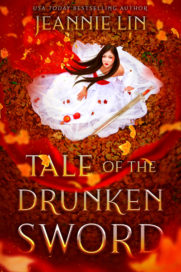 I was having a Twitter discussion with a couple of writer buddies around contests and feedback. How it’s so helpful when judges give comments versus just filling out the scoresheet. And how do you interpret polarized comments from different judges? And finally, when people judge, sometimes they feel like they ended up giving a six page critique or red-lined the whole darn thing and maybe that was overkill.
I was having a Twitter discussion with a couple of writer buddies around contests and feedback. How it’s so helpful when judges give comments versus just filling out the scoresheet. And how do you interpret polarized comments from different judges? And finally, when people judge, sometimes they feel like they ended up giving a six page critique or red-lined the whole darn thing and maybe that was overkill.
I’ve had that happen plenty of times. I send out pages asking for a look at motivation or a look at overall plot and I’ve received the pages back with every line marked up — suggestions for replacements of all my word choices, fixing all my passive sentences. I always step back from those detailed line edits with a sense that I can’t see the forest for the trees. I rarely give such edits because of my philosophy that:
1) that level of editing is very personal and tied to Voice. Tell me that too many of my sentences are passive and it’s distracting or that you hear an echo of the word “that”. I appreciate that, but going through the extent of reworking my individual sentences and suggesting how I should rewrite them is rarely helpful to me because those sentences will all naturally disappear and get reworked in the next revision.
2) That level of detail is only helpful at the very, very end of revisions when you’re spit polishing and only for an advanced writer who knows what to throw out. For a beginner writer who is trying to take all your advice, I feel this can be very destructive to their development.
Not to say I don’t always get something from a deluge of revision notes, broad to the nit-picky. But I feel that it’s easy to confuse a writer with such a critique. First, they may simply cry. Or freeze up like a deer in the headlights. They may become so lost about what to tackle first that the critique becomes counter-productive.
This is where teaching philosophy comes in. Or in this case, critiquing philosophy. Everyone has one deep down — even if you haven’t stated it yet. And no one’s philosophy is superior to anyone else’s. The philosophy just grounds you, as the critiquer, and gives you a reference point for making your decisions on what feedback to give and how to give it.
Ha! If I haven’t lost you yet, let me bring up Vygotsky and the Zone of Proximal development.
I threw that in there because it’s a five dollar phrase and I spent a lot of money for my Education degree to learn that Soviet dude’s name. It’s just the idea that students learn best when you gauge where they are and then give them proper scaffolding and guidance to get to the next level. Then they master that level until they can do it independently.
Trying to teach beyond that zone without addressing the gap causes frustration, increases the affective filter ($5 dollar phrase meaning you’re too keyed up/frightened/embarrassed/emotional to learn) and ultimately results in failure for the student. On the flip side, teach below the Zone and the student fails to learn or grow. The lesson is too easy.
So when I critique and when I comment as a contest judge, I’m aiming for the Zone of Proximal Development. The place where the maximum and most effective learning can occur. Based on the writing, find where the writer is “at”. Then identify what bit of writerly advice will most likely boost them to the next level. Push them to one notch beyond where they are.
Sometimes the writing is very solid, but the characters are flat. So I concentrate my comments on characterization.
Sometimes the writing sparkles, but the scenes don’t have a good build of tension, not enough highs and lows. So I’ll comment on that.
Sometimes the writing is very, very beginner. That’s tougher. Is the maximum benefit then to concentrate on sentence structure and grammar? Or on structural issues such as motivation, conflict, etc. I have to insert another philosophy there. I believe writing only smooths out with more writing and explicit instruction, i.e. telling someone how to write, doesn’t necessarily help a beginning writer. So yes, I may give a couple pointers about sentence structure, but I’ll stick to the global issues.
But what about all the other issues? All the other things that are wrong? Can you just ignore them? I can and I do. They’ll all work themselves out in the next zone or with practice and self-discovery.
This is why I always qualify when I critique that I don’t do line edits for people. Mainly because you don’t want me doing line edits. I find it hard to critique people at that level of detail without inserting too many of my Voice biases which I know are exactly that, my biases. Plus I suck at reading for that level of detail. I like to admire the forest. From there, I can see if a part of it looks a little barren.
So, what do you think? What’s your critiquing philosophy?
P.S. Any educational folks, if I’ve mangled Vygotsky and oversimplified, I truly apologize.












